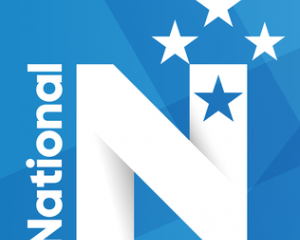These power companies exercise a significant measure of control over a significant natural resource in their generation infrastructure - water.
AS the reality of the sell-down of portions of some of New Zealand's state-owned enterprises draws nearer, the potential implications for all sorts of stakeholders are beginning to emerge.
The opening salvo has been around the Crown's Treaty of Waitangi obligations and the possible investment of iwi in these assets.
Already it is clear that when considering (even partial) privatisation of assets such as Genesis Energy or Meridian Energy, it is not simply a question over the ownership of a company that delivers a product or service as one of many in a competitive environment (such as Air New Zealand).
It is different even from power companies that do not own any generation assets.
These power companies exercise a significant measure of control over a significant natural resource in their generation infrastructure - water.
These two energy companies (since the transfer of the Tekapo power stations last year) control 20% of the country's renewable energy resources in their ownership of the Waitaki hydro scheme.
The existence of the scheme means that, in effect, the fourth-largest river in New Zealand (and the system of lakes and canals connected to it) is the tail race of generation infrastructure.
This water system is extremely important to the local area as well as New Zealand as a whole.
It supports a number of different values beyond electricity generation, including irrigation, recreation, angling, important mahinga kai sites and tangata whenua values more broadly, native flora and fauna species, as well as some of New Zealand's most iconic landscapes.
In other words, partial sale could have significant downstream implications.
The hydro-generation infrastructure has been in place for such a time as to be considered by some as part of the background environment.
Effectively, control of the power companies that own the generation assets means control of the river.
To an extent, the actions of the generators are controlled by resource consent conditions.
However, removal of the companies from the State-Owned Enterprises Act will take away the explicit imperative for these corporations to "exhibit a sense of social responsibility by having regard to the interests of the community in which it operates", as state-owned enterprises are currently required to do under the Act.
Although the courts have found that exercising social responsibility is not an obligation that carries with it a legal duty, removal of the companies from the Act certainly reduces political accountability in the corporate decision-making process.
Such accountability currently rests with the shareholding ministers to the House of Representatives and, by extension, to the public at large.
It is not difficult to envisage a scenario where the value of renewable electricity increases beyond that of, say, irrigation, and priority claims for the use of that water are made that are driven by private shareholder values.
Such corporate imperatives could detrimentally affect other river users and industries. The downstream issues need to be thought about and prepared for.
The New Zealand community is demonstrating a level of discomfort with the notion of rivers - water - and other natural resources being absolutely controlled by private interests, whether abstractive users such as irrigators or non-abstractive users such as hydro-electricity generators.
The question of whether we are prepared for such a large part of the South Island's natural resources, such as the Waitaki River, to be removed from public control, without compensating protections, needs to be carefully considered in the mixed-ownership debate.
Elizabeth Soal is policy man-ager for the Waitaki Irrigators Collective Ltd.










